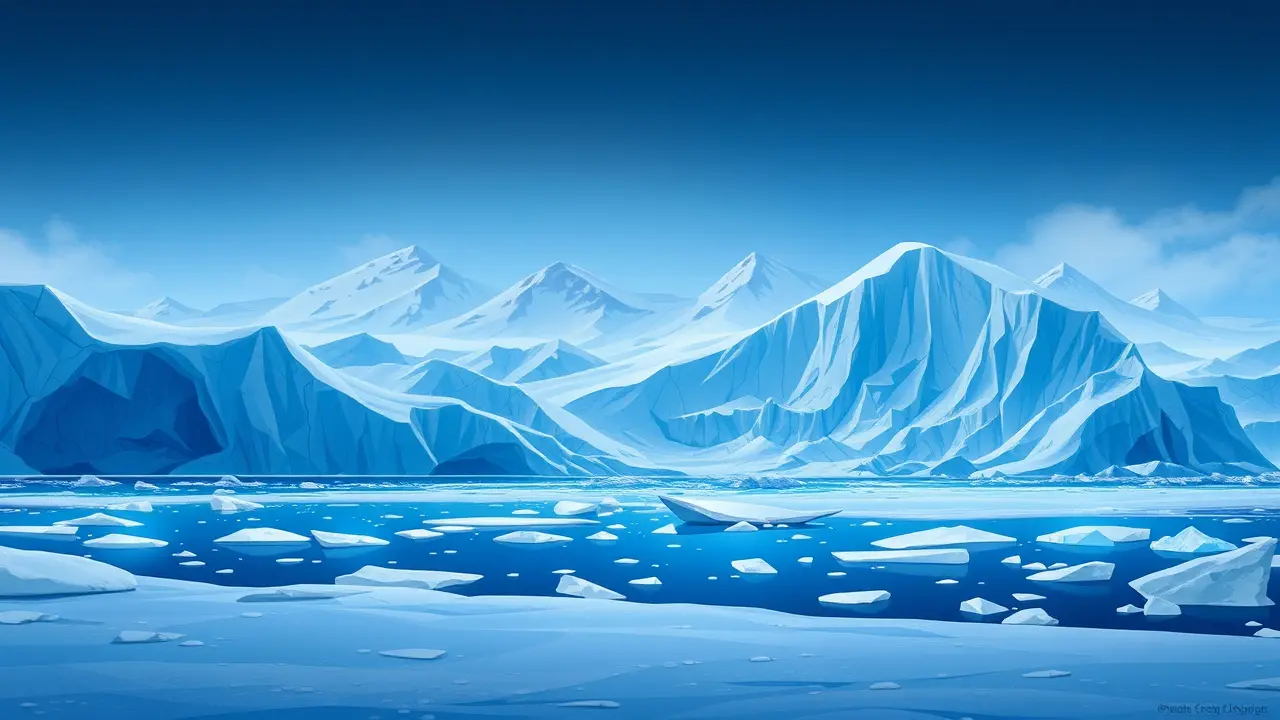
Scienceclimate sciencePolar Research
Antarctica’s collapse may already be unstoppable, scientists warn
RA
Rachel Adams
3 hours ago7 min read1 comments
The stark white expanse of Antarctica, a continent long perceived as a remote and frozen fortress, is now undergoing a series of alarming and abrupt changes that scientists warn may have already passed a point of no return, triggering a cascade of global consequences that threaten to redefine coastlines and disrupt the delicate balance of our planet's climate systems. The primary agents of this crisis are the twin phenomena of rapidly melting ice and the catastrophic collapse of vital ice shelves, which act as crucial buttresses holding back immense glaciers from sliding unimpeded into the Southern Ocean.This isn't merely a theoretical model for the distant future; satellite imagery and on-the-ground measurements from research stations, like the historic McMurdo and the remote Halley VI, reveal a landscape in violent flux, where ice that has persisted for millennia is now fracturing and disintegrating at a pace that has stunned even the most seasoned glaciologists. The implications extend far beyond the iconic, iceberg-dotted seascapes; as these frozen reservoirs melt, they pour unimaginable volumes of fresh water into the ocean, directly contributing to a relentless rise in global sea levels that jeopardizes low-lying nations from the Maldives to Bangladesh and coastal cities like Miami, New York, and Shanghai, forcing difficult conversations about managed retreat and the engineering of massive sea walls.Furthermore, this influx of fresh water is critically disrupting the great oceanic conveyor belt—the thermohaline circulation—a global system of deep-water currents driven by temperature and salinity differences that regulates weather patterns across the globe. A slowdown or collapse of this system, which has happened in Earth's deep past, could lead to dramatic shifts in monsoon seasons, intensified storms in some regions, and profound droughts in others, effectively rewiring the planet's climate wiring.The biological fallout is equally dire; the foundation of the Antarctic food web, the tiny, shrimp-like krill, is facing an existential threat as the sea ice it depends on for algae and shelter vanishes, which in turn places immense pressure on populations of Adélie and Emperor penguins, majestic creatures whose breeding cycles are perfectly synchronized with a stable, icy habitat. Scientists from institutions like the British Antarctic Survey and Scripps Institution of Oceanography, who have dedicated their lives to studying this last wilderness, speak with a unified and urgent voice: the window for averting the most irreversible damage is closing with terrifying speed.Their consensus, echoed in sobering reports from the Intergovernmental Panel on Climate Change (IPCC), is that only immediate, sweeping, and global reductions in greenhouse gas emissions—a rapid transition away from fossil fuels—can begin to slow this momentum. To ignore these warnings is to accept a future of escalating climate refugees, economic disruption from flooded ports and farmlands, and the irreversible loss of one of Earth's most unique and vital ecosystems, a silent sentinel whose collapse speaks volumes about the planetary experiment we are now conducting.
#featured
#Antarctica
#ice melt
#sea level rise
#climate change
#penguins
#ocean circulation
#emission reduction
Stay Informed. Act Smarter.
Get weekly highlights, major headlines, and expert insights — then put your knowledge to work in our live prediction markets.
© 2025 Outpoll Service LTD. All rights reserved.